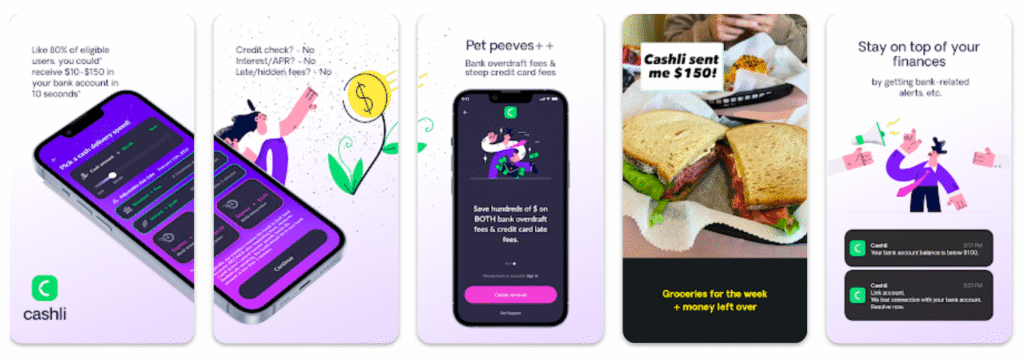What You Will Get At A Glance
Buy now, pay later is a glorious time for shoppers with flexibility, as they do not have the luxury of a traditional credit card. The credit score needed to use Affirm has become an important question for many users exploring BNPL options. Called on by retail corporations like Walmart, Amazon, Best Buy, and Peloton, Affirm finds a place as one of the most-wished-for BaaS providers in 2025.
But if you are considering purchasing Affirm, here’s the question: What credit score will you need to use Affirm in 2025? The answer is never simple, as approval depends on many factors, not just the credit score.
This guide will reveal minimum credit score requirements to use Affirm, an explanation of the approval process, practical tips to increase your chances, and an introduction to Beem’s Everdraft™ as an alternative financing option when Affirm’s not your best option.
What Is Affirm and How Does It Work in 2025?
Before discussing credit requirements, let’s examine how Affirm operates in today’s financial landscape. Understanding its role and how it fits into the growing “buy now, pay later” (BNPL) ecosystem can help you understand why approval decisions vary.
Affirm isn’t just another lender—it positions itself as a flexible payment option that balances consumer convenience with responsible lending practices. By examining how it works behind the scenes, you’ll be better prepared to know what lenders like Affirm look for when reviewing your application.
A Quick Overview of Affirm
Affirm is a buy now, pay later (BNPL) platform that lets you split purchases into installments instead of paying the full cost upfront. Depending on the merchant and your credit profile, Affirm loans come with interest rates ranging from 0% to 36% APR.
Here’s why it’s popular in 2025:
- Flexible payment options at checkout
- Transparent terms (no late fees, but interest may apply)
- Widespread availability with leading retailers like Walmart, Amazon, Best Buy, and Target
For many consumers, Affirm feels like a modern alternative to credit cards—especially when offered with 0% APR promotions.
Types of Affirm Loans Available
Affirm isn’t one-size-fits-all. Depending on the purchase, you may be offered different types of loans:
- 4 interest-free installments (Pay in 4) – Split into four equal payments due every two weeks.
- Monthly installment plans – Ranging from 3 to 36 months, sometimes with interest.
- Affirm Card (virtual credit card): This works like a digital card number you can use almost anywhere online, with repayment options similar to Affirm’s checkout loans.
Also Read: Best Instant Cash Advance Apps with Low Fees in 2025
What Credit Score Do You Need to Use Affirm in 2025?
Now, let’s answer the core question: what credit score is needed to use Affirm this year?
Minimum Score to Qualify
Affirm doesn’t publish an official minimum, but user data and reports suggest:
- General minimum FICO score: 550–600
- Better odds at 640+ – Higher scores unlock larger loan amounts and better APRs (including 0% offers).
So while you don’t need excellent credit, having a fair-to-good score improves your approval chances.
Does Affirm Do a Credit Check?
Yes—Affirm looks at your credit, but the type of inquiry depends on the loan:
- Soft pull – For Pay in 4 and some short-term plans. Doesn’t affect your credit score.
- Hard inquiry – For longer-term loans (6–36 months). This may temporarily impact your credit score.
Factors Beyond Just Credit Score
Affirm approval isn’t solely based on your score. Other key factors include:
- Payment history with Affirm – Previous on-time payments increase your chances of higher limits.
- Income-to-debt ratio – Your ability to take on more debt relative to your current obligations.
- Length of credit history – A longer, stable record improves approval odds.
How to Improve Your Chances of Getting Approved by Affirm
If you’re on the borderline or have been denied before, here are practical steps to strengthen your profile.
Quick Credit Fixes That Help
- Pay off existing credit card balances – Lower utilization is a major factor.
- Avoid late payments – Even one missed bill in the last 3–6 months can hurt your odds.
- Increase available credit – If possible, request higher credit limits on existing cards to improve your utilization ratio.
Timing Your Application Right
- Avoid applying during heavy financial activity – For example, after multiple new credit applications.
- Maintain a clean banking history – Affirm may evaluate your connected bank account for recent overdrafts or returned payments.
Maintain a Consistent Payment History
Repaying on time can unlock larger loans and better APR offers if you’ve used Affirm. Think of it as building a track record with Affirm’s system.
Also Read: Instant Cash Advance Apps for Bad Credit
What to Do If Affirm denies you
Not everyone qualifies on the first try, and being denied can feel frustrating—but it’s not the end of the road. The good news is, a denial doesn’t permanently block you from using Affirm. With some adjustments and patience, you can improve your chances the next time you apply.
Common Reasons for Denial
- Low or no credit history – If you’re starting or haven’t built a strong credit profile yet, Affirm may not have enough information to assess your risk level.
- High existing debt – When your credit cards or other loans are already maxed out, Affirm might view you as financially stretched, which increases the chances of rejection.
- Suspicious spending patterns or account flags – Affirm also uses fraud detection tools. Unusual transaction behavior, inconsistencies in account information, or past missed payments can all trigger a denial.
How to Reapply or Get Reconsidered
- Wait 30 days before trying again – Too many applications in a short span can lower your chances. Waiting a month allows your credit profile or financial activity to stabilize before reapplying.
- Link a more active bank account – Affirm evaluates your cash flow, not just your credit score. Connecting an account that shows steady deposits and responsible spending can improve your profile.
- Use a co-applicant (if available for larger loans) – While not always offered, some BNPL services allow you to apply with a co-signer for big-ticket purchases. This can boost your approval odds if your credit isn’t strong enough.
- Work on improving financial signals – Even small actions, like reducing your credit utilization or making on-time payments for a few months, can make you appear less risky to Affirm.
- Consider alternatives while you wait – If you need access to funds urgently, exploring options like Beem’s Everdraft™ can help cover expenses without putting additional pressure on your credit profile.
Consider This Alternative: Beem’s Everdraft™ Instant Cash Advance
If Affirm says no—or if you simply need cash instead of a loan tied to a specific purchase—Beem’s Everdraft™ will be a game-changing option in 2025.
Why Beem Is a Smart Option When Affirm Says No
- No credit check at all – Your approval doesn’t depend on your credit score.
- Up to $800 in instant cash – Far higher than most BNPL limits.
- No interest or hidden fees – Unlike Affirm’s loans, you never pay extra.
Fast Access, No Installment Trap
Unlike Affirm, Beem gives you cash directly—not just the ability to buy from a specific store. You can use it for rent, groceries, bills, or emergencies. And since there’s no installment trap with interest, you’re in full control of repayment.
Who Qualifies for Beem Everdraft™
- U.S. residents with active bank accounts
- Beem evaluates banking behavior, such as deposits and cash flow, not credit history.
Key Differences: Affirm vs Beem
| Feature | Affirm | Beem (Everdraft™) |
| Credit Check | Yes (soft or hard inquiry) | No |
| Interest/Fees | 0%–36% APR | 0% interest, 0 fees |
| Use of Funds | At checkout (limited merchants) | Anywhere (cash in bank) |
| Eligibility | Credit score + payment history | Banking activity |
| Repayment | Fixed installments | Flexible, based on limits |
Final Thoughts: Choose Smartly Based on Your Credit and Cash Needs
Affirm is a powerful BNPL tool for spreading out payments, especially if you qualify for 0% APR offers. But it isn’t always accessible to everyone, especially if your credit score falls below 600 or you already carry significant debt.
When to Use Affirm
- For fixed, transparent monthly purchases
- When you qualify for 0% APR deals
- When you want a structured repayment plan directly at checkout
When to Choose Beem Instead
- When you need cash today, not a store-specific loan
- If your credit score is low or nonexistent
- If you prefer flexible, interest-free emergency funds
Ultimately, the best choice depends on your situation. It can be a useful financing tool if your credit score gives you access to Affirm’s better terms. But if you’re stuck thinking, “I need help right now, and I can’t risk a denial,” Beem’s Everdraft™ offers a smarter, stress-free way to instantly get the money you need.
FAQs: Credit Score Needed to Use Affirm in 2025
What’s the minimum credit score required for Affirm?
Typically, the score is around 550–600, but higher scores improve your odds and loan amount.
Can I use Affirm without a credit history?
It’s possible with Pay in 4, but longer-term installment loans usually require some credit background.
Will Affirm hurt my credit score?
This is only for longer-term loans with a hard inquiry. Pay in 4 uses a soft pull and won’t affect your score.
Can I get prequalified for Affirm?
Yes. Affirm may show you eligibility options without impacting your score.
What if I’m denied but need cash now?
Try Beem’s Everdraft™, a no-credit-check alternative offering instant cash you can use anywhere.






